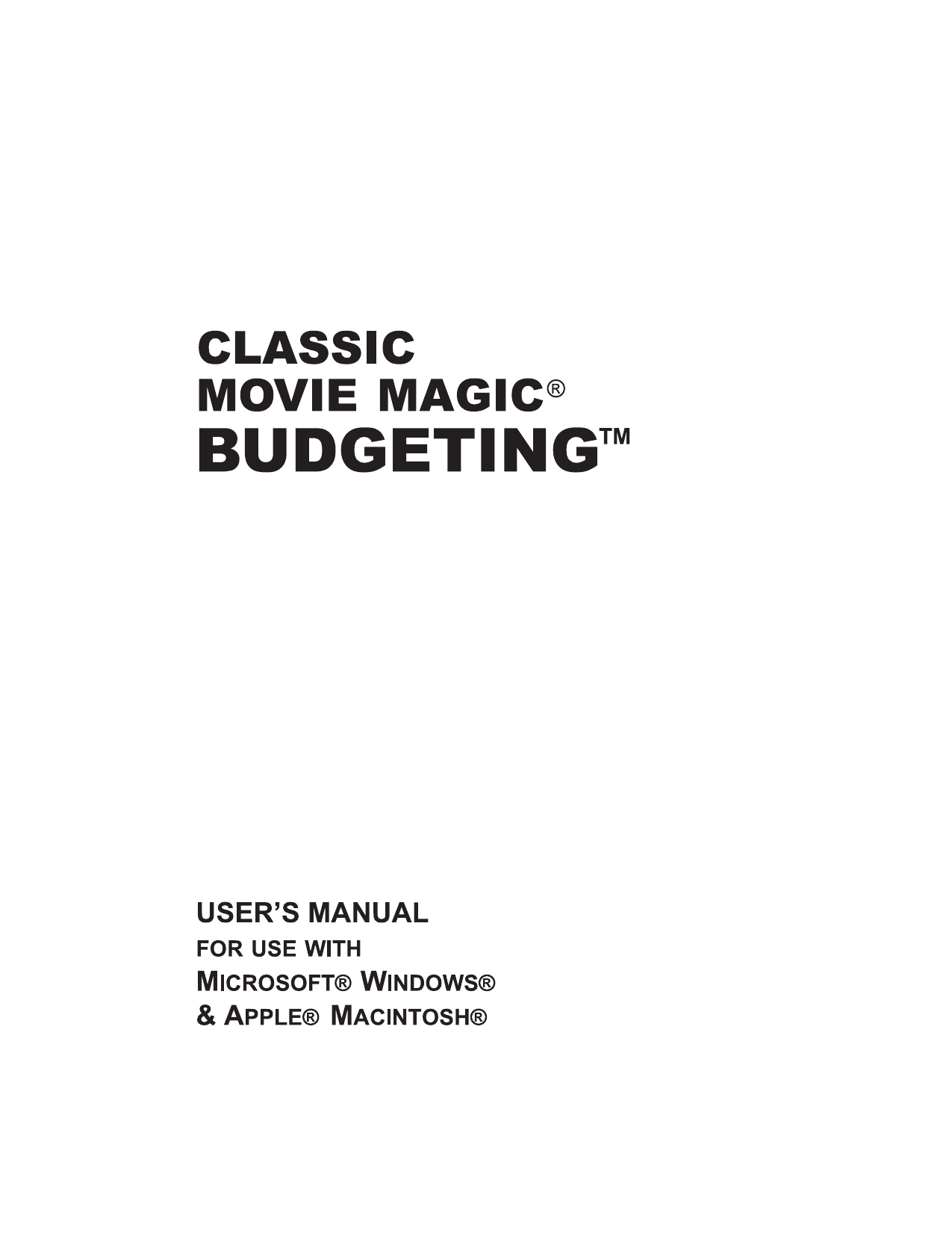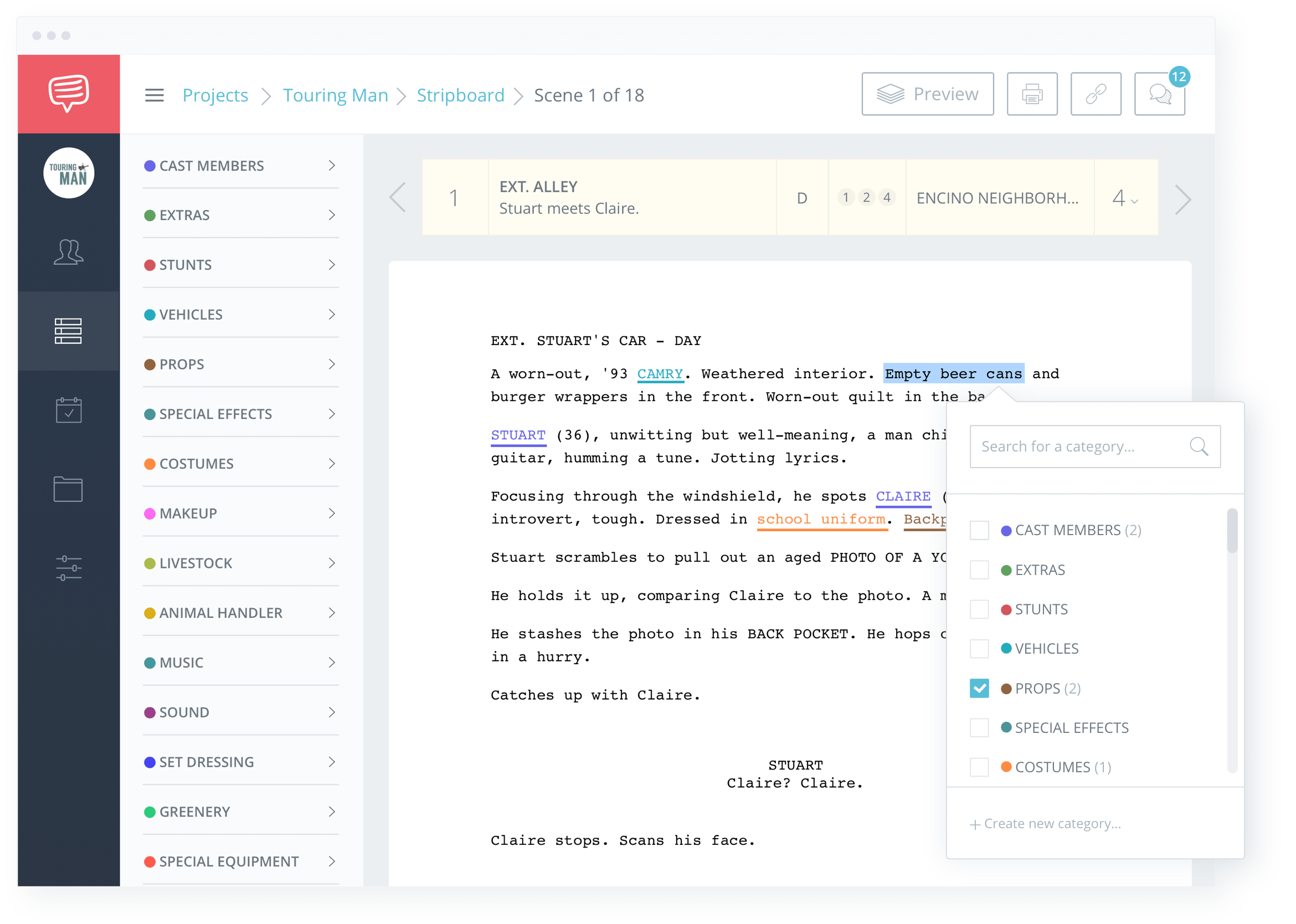

For example, if a shoot is going to last for four weeks, a Global must be set up in Movie Magic Budgeting that prompts it to automatically multiply any crew rate by four whenever the word “shoot” is typed into the specified area controlling the length of the crew member’s time with the company.

What are Globals and Fringes? Globals are usually fixed periods of time that will be used on more than one item. Seems like a lot of work to simply type in a number, but we’re not done! Because before any of this is done, Globals and Fringes must first be set up. The Details layer is where the rate can finally be entered. From the Production Staff list, the Production Manager line must be clicked, which opens the Production Manager Details page. In order to enter a rate for a Production Manager, the Produc-tion Staff line must be clicked, which opens the Production Staff section of the Accounts page. For example, the Top Sheet layer of Movie Magic Budgeting has a line item called Production Staff. The third layer of Movie Magic is the Details, which is simply a list of all the components of the subcategories. The Accounts section lists all the main articles in a budget, from each crew position to the camera package to insurance. The next level is the subcategories section, called Accounts. The Top Sheet is what investors, insurance brokers, lawyers, union leaders, and everyone else will want to see. It is the page that lists the totals of every subsection of the budget (talent, production, editorial, etc.) and adds them together for the grand total. The program is built on the idea that a budget contains three levels. Also, many unions have other costs, like overtime and how many members need to be present at a shoot, that Movie Magic won’t be able to tell you this either. You may be able to negotiate something other than the rates listed on Movie Magic.

If you are planning to use a union crew, it is recommended to contact IATSE (International Alliance of Theatrical Stage Employees and the Teamsters ( about how you can work together within your budget. But, I was unable to access any Screen Actors Guild (SAG) rates lower than the Standard Low Budget rates, and these rates did not list the weekly Principle rate. Union and guild rates can also be accessed through Movie Magic. All the forms are fairly similar, differing only slightly in account numbers and line-item details. Movie Magic has about a dozen different budgeting forms from studios and companies such as HBO and Disney you can choose from.
#Movie magic budgeting how to
The tutorial and manual teaches how to use every aspect and every shortcut of the program, but it does not teach you how to make a budget if you have neve put one together before. It will take about a day or two to go through.

The manual for the tutorial is over a hundred pages long, and I recommend reading it in full. It is not simple to learn, but is easy to use once you master it. Movie Magic is a stand-alone program, meaning it runs on its own format, not off another platform, such as Excel. It is also the most expensive-about $650. Movie Magic Budgeting is the most widely used film budgeting program. There are several programs out there to choose from, three of which I test-drove for this article: Movie Magic Budgeting, Easy Budget, and BoilerPlate. They are basically spreadsheets with built-in macros that help delineate every single expenditure you plan on making throughout your project. Most filmmakers fall back on computer programs that are specifically designed to help create an estimate. There are many hidden costs, and filmmaking has so many components to it that generating a realistic budget is always difficult. Unfortunately, it’s not as easy as collecting price quotes from vendors, crew, cast, and consultants, putting them in a list, and finding the sum. What is your budget? What is your budget? One of the first questions everyone who touches your project will ask is, “What’s your budget?” The investors will ask it, the banks will ask it, the crew will ask it, the casting agents will ask it, the lawyers will ask it, the distributors will ask it, and even most festivals will ask it. It’s the thing that almost every other decision hangs on. It’s one of the few constants in every type of filmmaking. It is a crucial part of every production. Before shooting a film or video, long form or short form, narrative or documentary, before beginning development, fundraising, or even casting, there is one thing every filmmaker should have, a budget.


 0 kommentar(er)
0 kommentar(er)
